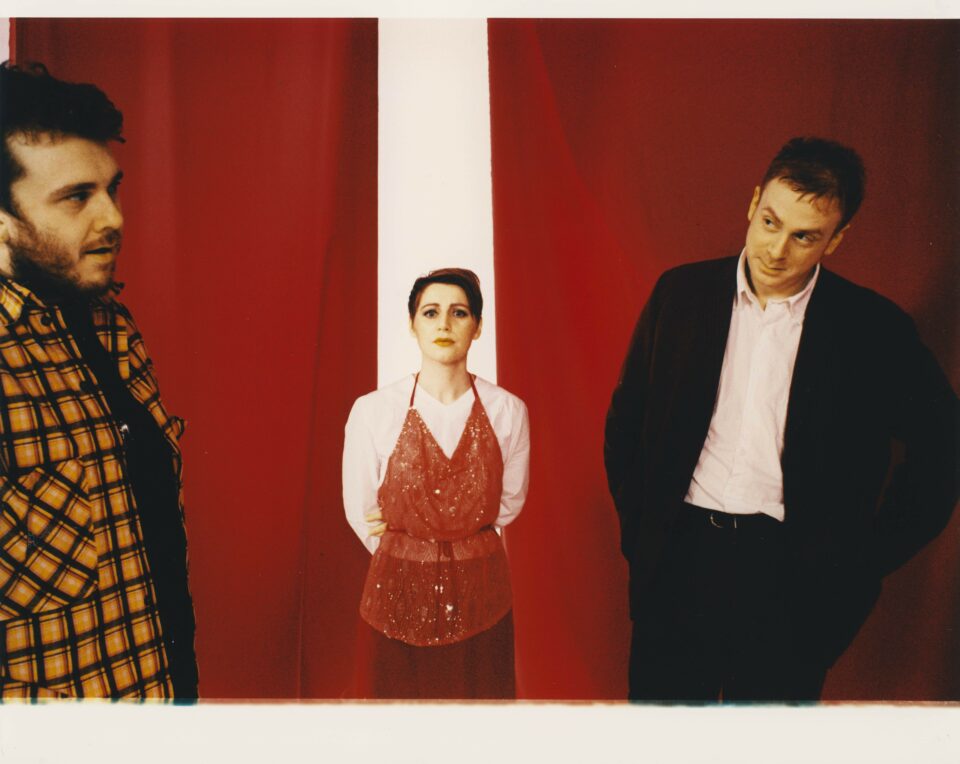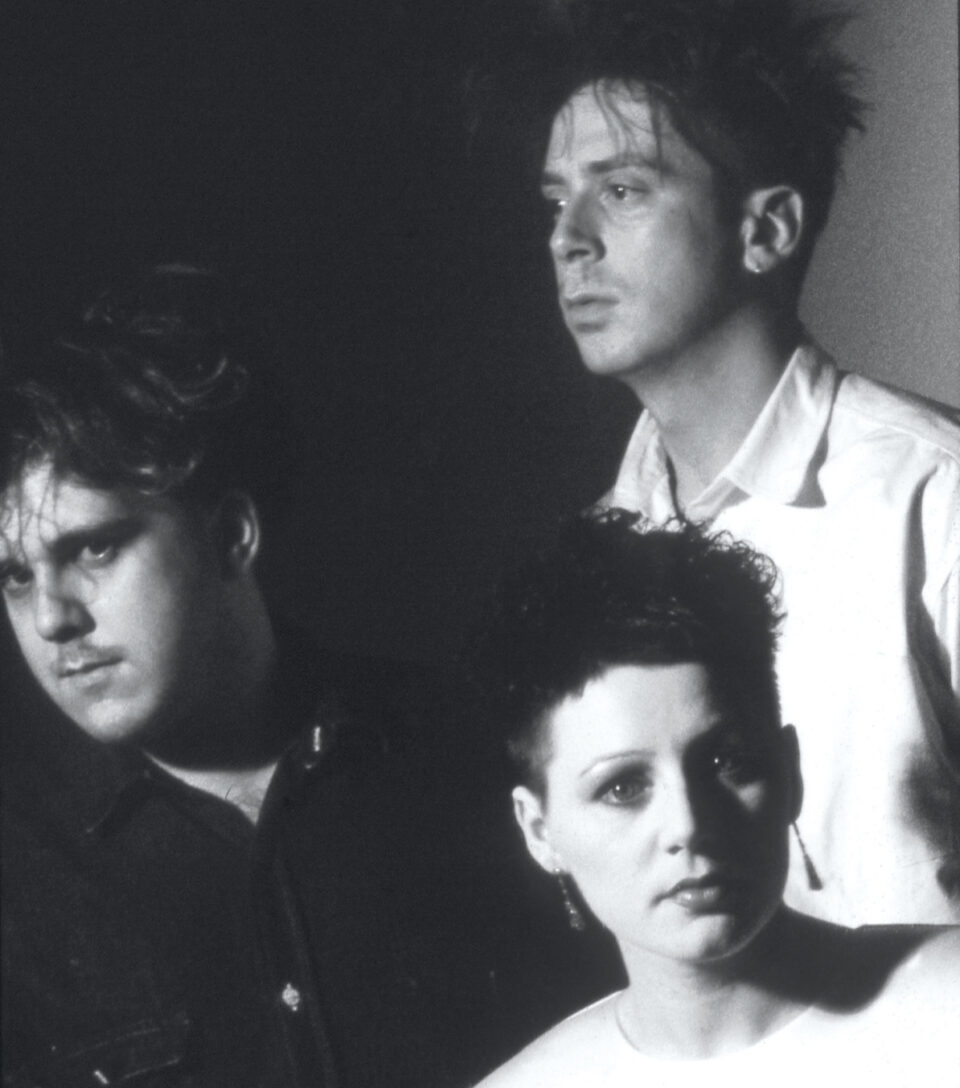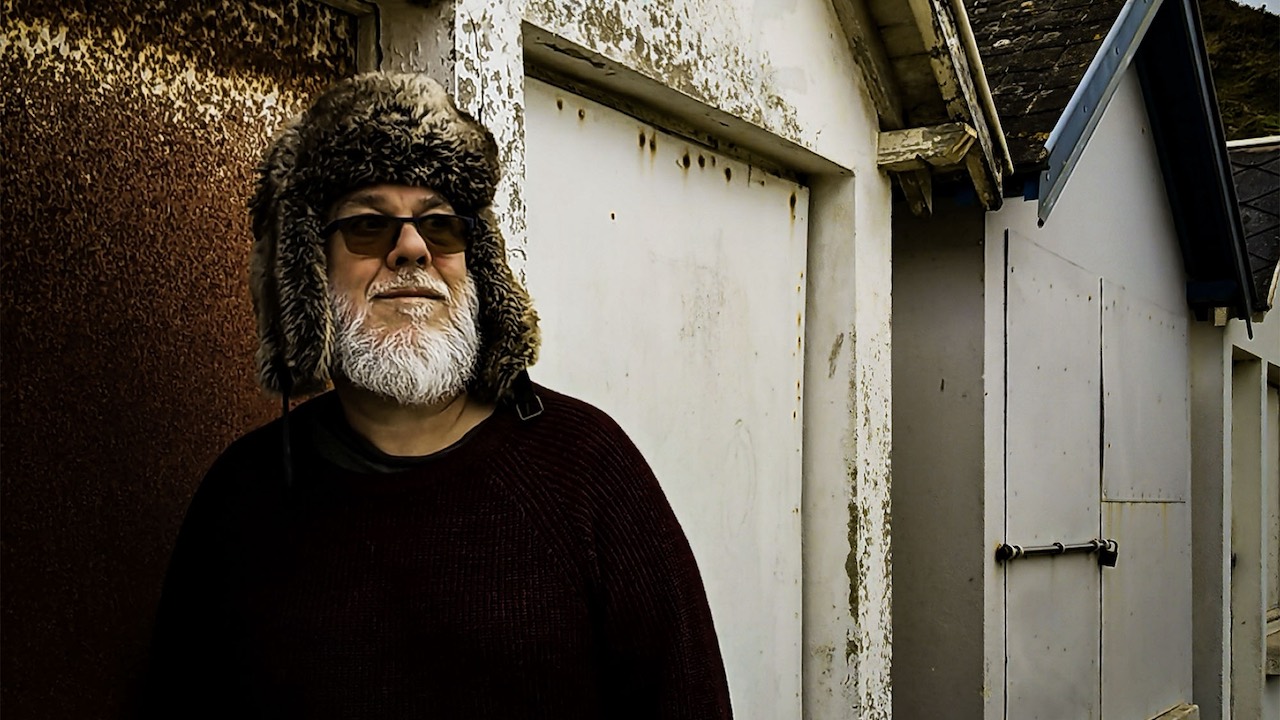When Robin Guthrie was still a teenager he co-founded Cocteau Twins, one of the most beloved bands to ever emerge from Scotland. His highly melodic and ethereal guitar playing was a crucial element in the band’s dreamy, atmospheric sound, providing the perfect counterpoint to vocalist Elizabeth Fraser’s soaring soprano. Cocteau Twins released eight studio albums before calling it quits in 1997, but they’re still revered as one of the most influential and innovative dream-pop bands of all time.
Post–Cocteau Twins, Guthrie has continued working as a solo artist, as well as producing and collaborating with numerous other musicians. His latest release, this past July’s Atlas EP, contains four atmospheric instrumental tracks that are a kind of sonic travelog as they track Guthrie’s frequent journeys around the world. In August, he also offered up a nod to his past by reissuing The Moon and the Melodies, Cocteau Twins’ 1986 full-length studio collaboration with the poet and avant-garde/jazz musician Harold Budd. For this release, Guthrie remastered the original tapes, giving the beautiful songs an even more brilliant sheen. He and Budd would continue to work together on more music—the two were completing 2020’s Another Flower when Budd passed away from COVID-19 that same year.
During a recent video chat from his recording studio in France, Guthrie tells me what inspired these particular works, and takes a look back across his groundbreaking career.

photo by Pav Modelski
What was it like to revisit your first album with Harold Budd?
Going back to anything that’s so old is always a bit emotional—and a bit challenging, technically, because it was all made with these old formats that people used to use and it had to be brought up to date so that it would sound good [now]. So I put a bit of TLC into it, and it came back, and it really was a nice experience. And a bit melancholic, because Harold’s not with us anymore. Harold was so cool because he really just liked playing—all the sort of technical stuff, he just left that to me. I really love the technology and making the sounds in the atmosphere, but kind of never really learned to play properly, so we have a bit of an “opposites attract” sort of thing.
Now you have this solo EP out, as well. What was the inspiration behind Atlas?
I chose “Atlas” for the title because I’m 62 years old and I’ve been traveling since I was about 18. I’ve been going on tour everywhere, then after the tour would finish I’d go back to the places that I discovered, always taking lots of photography. When I was younger I used to play in countries like the DDR [East Germany], USSR when it was the Soviet Union, Yugoslavia—countries that don’t exist anymore, so there’s a time and space thing going on. And I found this radio, and I just liked the look of it because on the dial it had all these radio stations that no longer exist, with countries that no longer exist. And I thought, “Wouldn’t it be great if we could just tune that back into where it was?” Because everything moves on.
I create quite a lot of my music when I’m traveling because I always take a laptop and take pictures, so all of my artwork on my EPs and albums are photographs that are all representative of something, and they’re all rather neurotically hewing together with the title so they actually all mean something to me. So, generally speaking, when I come into my studio and create, it’s with some particular experience in mind.
Atlas showcases the kind of distinctive guitar playing that you’ve done right from the start of your career. How did you develop your own unique sound?
I had an idea that I couldn’t really play the guitar like other people, because that involved learning music and practicing. I was a bit too impatient for that. I had no musical training whatsoever. Also, I was starting to play guitar in times when really there were very few gadgets or pedals or anything that you could make sounds with, so it was a combination of making things up and trying things. Whatever equipment I could get, I would try to plug it in this way or that way, and eventually come up with something which was different. I was a teenager, so all teenagers have to be different, right?
Very fortunate for me, I was surfing the wave of new technology coming along. I was right at the top of the wave of everything changing from analog to digital. So I was young, I was full of confidence, and I had this idea that I just wanted to make this sound that was not like anything else. And certainly, when I first started to mess around with echoes and delays and reverbs, I’d get in a studio [and say], “What does this do? What does that do?” All of a sudden I found myself making sounds I’d never heard.

photo courtesy 4AD
“Elizabeth’s voice is just extraordinary. Had she had that voice and just sung some folk songs or something, maybe nobody would’ve noticed.”
What made you want to become a musician in the first place?
I come from a very small, depressed industrial town. Music was a big lifeline to us. I’m talking about the late 1970s. Obviously no internet. Radio was for pop hits, but John Peel had an alternative radio show between 10 and midnight—that was a big connection. You had the English music papers, which we got in Scotland a couple of days later, so you could see bands that you’d maybe heard of. But it was really quite disconnected. It was a small town, so it was another propulsion to get out of there. It’s like, “We can do this.” Nobody told us we couldn’t. Well, everybody told us we couldn’t, but we were teenagers, so we just didn’t listen to them.
Liz was fairly estranged from her family and my father had just died, so I just lost my shit and stuck together with Liz. We ended up taking a tape to London during that period and getting it to the label that we wanted to be on. It was a time that, if circumstances had happened at any other moment in my life, it would’ve been a very different experience. But I was 19 years old, Liz was 17, and we were just getting fucked by the world, or so it seemed. And it just seemed like, “If it’s not now, when is it going to be?”
What do you think it is about the music you made with that band that’s resonated so strongly with people for four decades now?
Elizabeth’s voice is just extraordinary, and the way that that voice was actually presented—had Elizabeth had that voice and just sung some folk songs or something, maybe nobody would’ve noticed. But it was put into a context that represented very much us as a couple. We were together for 13 years, and it was very, very intense. We both have certain skill sets and certain mindsets that are maybe not quite cut out for a nine-to-five lifestyle, I guess. Our minds worked in a very different way, and together, when we worked, there was something there that people got to connect with. So all the dots joined up. This was all-encompassing for us. Every aspect of our cerebral life and our souls went into that. We didn’t really have a life outside that. So it was intense, and I think that probably shows.
What’s coming up next for you?
The next record I’m going to release comes out in November. It’s another EP. Whereas Atlas is like the travel to the destination, the next one—which I’m not going to tell you the name of yet because I’ve not announced it—that’s kind of like the destination.
What drives you to continue making music?
I continue to make music because I’m not really finished. People connect with things that they’ve heard all their life, so it’s difficult to tell them now, “I actually still do things!” That’s a really difficult thing for artists because you know that people would much rather have me getting the old band back together and going onstage and playing all the old songs. But that’s not happening. This [solo work] is what I do. I’m equally as buzzed about what I do [now] as I ever was about everything I did before. I can’t expect the public to give a shit about that. That’s not the point now. I’m now making music because I do actually enjoy the process of doing it. FL







